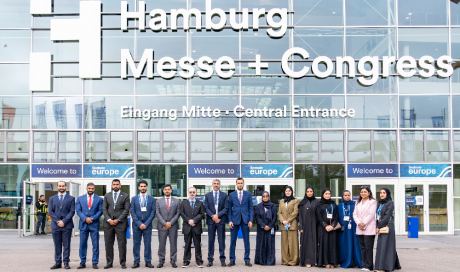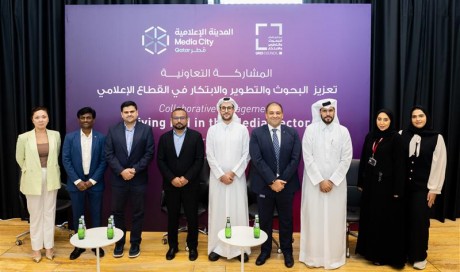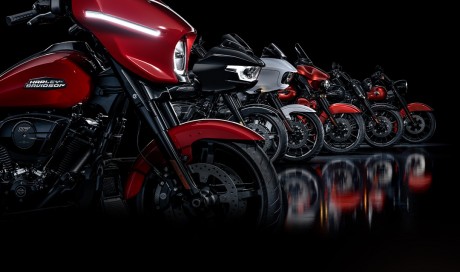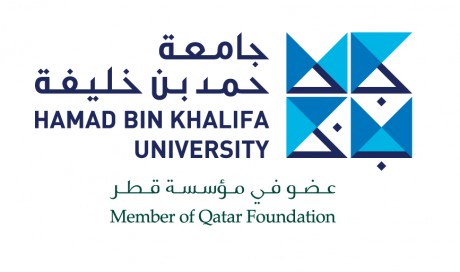Singapore, the ASEAN member which trades most with Doha, received 5.3 percent of Qatari exports in 2016. During Emir Tamim’s three-country ASEAN tour last year, his first stop in Singapore built on the visits that his father had paid to the island nation in 2005 and 2009.
The Qatari emir’s visits resulted in Doha and Singapore signing seven bilateral agreements in a host of domains from investment to business and training. By stopping in Singapore, Emir Tamim solidified relations with Singapore’s president, Halimah Yacob. She outlined her vision for growing Singapore’s ties with Doha, emphasizing that bilateral ties have potential to achieve the “next level” of cooperation.
When the Qatari emir visited Malaysia’s capital, Kuala Lumpur, he and Prime Minister Najib Razak signed four bilateral memoranda of understanding in sectors that ranged from judicial cooperation to diplomacy and education. The Malaysian prime minister hailed Doha’s commitment to countering violent extremism in the Islamic world, underscoring the extent to which the ATQ had failed to convince Kuala Lumpur to view the alleged Qatari threat through a Saudi/Emirati lens.
In fact, after Emir Tamim left Kuala Lumpur, Qatar’s state-owned airline—Qatar Airways—announced that it would begin direct flights in 2018 between Doha and Penang, the airline’s second destination in Malaysia.
The Qatari emir also visited Indonesia, an important country in terms of Doha’s quest to further diversify its relations with large economic players in Asia and ones that play an important role in the grander Sunni Muslim world. While in the most populated Muslim country, Emir Tamim met with President Joko Widodo and the two leaders discussed ways to grow bilateral ties across various domains, including energy, tourism, infrastructure, and investment.
Europe
One day after the GCC crisis erupted, US President Donald Trump sent out tweets that seemed to suggest his White House would support the ATQ’s blockade of Qatar. The Pentagon and the State Department had fundamentally different reactions, highlighting how different branches of the US government were not at all on the same page, at least during the crisis’ earliest stage. Consequently, Doha saw a need to further diversify its deep relations with Western powers beyond the US by investing in closer ties with influential European states.
The significant roles that European countries have played in the Qatar crisis, which they did not play in the GCC spat of 2014, underscores both the extent to which American influence in the Middle East has continued to wane, and also how actors such as the United Kingdom, France, and Germany have sought to fill this void.
In contrast to the American president’s confusing and contradictory tweets about the ATQ’s blockade of Qatar, leaders on the European continent have been clear in their opposition to the Saudi/UAE-led bloc’s actions against Doha. European opposition to the blockade has helped Doha avoid international isolation.
Germany is a case in point. From Berlin’s perspective, the Qatar crisis constitutes a major threat to German interests. Berlin’s stake in international and regional efforts to defeat the forces of violent extremism in the Middle East will be undermined by continued division within the GCC; thus, helping Qatar and the ATQ overcome this crisis is a high-ranking priority for German foreign policy decision makers.
Nearly one month after the GCC’s diplomatic row broke out, Berlin’s chief diplomat, Sigmar Gabriel, visited Saudi Arabia, the UAE, and Qatar, to help the parties move toward a settlement. In a joint press conference in Doha with his Qatari counterpart, Gabriel stated that the sovereignty of Qatar must be respected, and he hailed Doha for showing “restraint” in its response to the ATQ’s blockade.
By endorsing Qatar’s narrative that the blockade constituted a violation of a UN member’s sovereign rights, Gabriel’s words were a sign that Germany would not accept the ATQ’s anti-Qatar agenda.
Beyond Berlin’s interests in the GCC remaining a cohesive and functional sub-regional institution for security purposes, Germany’s sympathy for Qatar also stems from economic variables. QIA has been a major investor in the German economy. Since 1999, when Emir Tamim’s father and predecessor visited Germany, Berlin-Doha economic relations have grown significantly.
In 1999, the two countries enacted a bilateral Investment Promotion and Protection Agreement, as well as an Air Transport Agreement. In 2002, the Germans established a business council in the emirate five years before the formation of a German-Qatari joint economic commission, which met five times between 2007 and 2016.
QIA has been an active SWF in Germany for years, investing in major German entities such as Volkswagen, Hochtief, Siemens, and Deutsche Bank. In much the same way that QIA helped the American economy recover from the 2008/2009 economic crash, the Qatari SWF did so in Germany, thereby improving Doha’s reputation in mainland Europe’s economic heavyweight.
When Qatar’s then-Prime Minister, Sheikh Hamad bin Jassim Al Thani, attended the 2013 Business and Investment in Qatar Forum in the German capital, which Chancellor Merkel also attended, QIA announced plans to step up investments in the country. With 64 German firms active in Qatar, and with bilateral trade having reached $2.87 billion in 2015, Doha has made itself an important business and investment partner of Germany, a factor which has largely explained Berlin’s decision to support Qatar amid the blockade.
Not lost in the equation is Germany’s interest in decreasing its dependence on Russian gas, which offers Qatar an opportunity to play a more prominent role in Germany’s energy landscape. The same is true for Poland, whose state-owned oil and gas company PGNiG signed an initial long-term contract with Qatargas in 2009 for Liquefied Natural Gas (LNG).
In March 2017, three months before the start of the Qatar crisis in the GCC but with European leaders already seeking to reduce their reliance on Russia as a gas supplier, Qatargas and PGNiG agreed to double the volume of LNG provided by Qatar to Poland. Qatar currently exports about one-third of its LNG to Europe, with the United Kingdom, Belgium, Italy, and France also receiving significant volumes.
LNG forms one of numerous pillars of Qatar’s long and historically-rooted relationship with the United Kingdom. In 2012, Lord Howell, a former Secretary of State for Energy in Margaret Thatcher’s government during the 1980s and an advisor on energy policy to then-Foreign Secretary William Hague, alluded to the importance of Qatari gas supplies to UK energy security.
He was recorded as candidly remarking that if Qatar “was to go into chaos we would be up shit creek, we really would.” Howell’s somewhat undiplomatic comments reflect the fact that Qatar not only provides Britain with almost all its LNG cargoes, but also that Qatar Petroleum is the majority shareholder (67.5 percent) in the South Hook Gas Company.
South Hook operates the LNG terminal at Milford Haven in Wales that receives the shipments. His remarks illustrate also the reality that the UK – along with numerous other countries in Europe and Asia – has become an energy security stakeholder in Qatar’s continuing stability, resultant from its strategic buildup of global natural gas partnerships.
The utility of making Qatar vital to a multitude of international partners was in part a lesson learned from the multinational coalition that mobilized so rapidly in 1990 to liberate Kuwait from Iraqi occupation.
The relationship between Qatar and the UK is rooted in history. In 1916 the two countries signed an agreement that saw Qatar become a British-protected state until 1971. Generations of Qataris have studied at public schools and universities in the UK and successive emirs of Qatar have been graduates of Britain’s prestigious Royal Military Academy at Sandhurst.
The UK is the largest destination for Qatari capital. More than £35 billion has been invested in sectors from infrastructure and real estate to IT and energy ventures. An investment vehicle (Canary Wharf Group Investment Holdings) co-owned by Qatar Holding (a subsidiary of the Qatar Investment Authority) and Brookfield Property Partners, a North American investment group, is the largest single property-holder in London, with iconic buildings and brands under full or partial Qatari ownership.
These include the London Olympic Village, The Shard, Chelsea Barracks, large parts of the Canary Wharf financial district, and Harrods department store in Knightsbridge.
In 2014, Qatar’s seal of approval from the British establishment came when the Qatar Investments & Projects Development Holding Company – an investment vehicle set up by former Prime Minister Abdullah bin Khalifa Al Thani and his sons – became Royal Ascot’s first corporate sponsor in its 300-year history. Elsewhere in Britain, Qatar Airways is the biggest stakeholder in the International Airlines Group, the owner of British Airways.
The close links between the two carriers were manifested in July 2017, just weeks into the diplomatic crisis, when Qatar Airways made eight A320 aircraft available on wet lease to British Airways to enable the UK carrier to offset a strike by cabin crew. Qatar’s importance to aviation in Britain was underlined in 2012 when Qatar Holding acquired a 20 percent stake in BAA, the operator of Heathrow Airport in London (now rebranded as Heathrow Airport Holdings).
At least one major Qatari investment in Britain, however, has gone sour. The Financial Conduct Authority and the Serious Fraud Office have spent years investigating the circumstances of Qatari (and Emirati) participation in an emergency fundraising scheme launched by Barclays Bank during the global financial crisis in 2008.
Bilateral ties between Qatar and France blossomed during the presidency of Nicholas Sarkozy but waned somewhat under his successor, François Hollande, who tilted French policy in the Gulf closer toward Saudi Arabia (although Emir Tamim did make France his first visit to an EU state after taking power).
Qatar’s most visible stake in France by far is Qatar Sports Investments’s ownership of the Paris Saint-Germain football club and the acquisition in 2010 by the beIN Media Group (a spinoff of Al Jazeera Sports) of the rights to broadcast French football; beIN was founded by Nasser Al Khelaifi, the chairman of Qatar Sports Investments who serves also as the president of Paris Saint-Germain.
Qatar has invested more than €25 billion in France and, with an estimated 200,000 French speakers in the country, was even admitted to the International Organization of La Francophonie in 2012.
Furthermore, the Qatar Investment Authority partnered with the Caisse des Dépôts et Consignations to launch a €300 million ‘Future French Champions’ fund to support small- and medium-enterprises in France. France’s Total has additionally served as a lynchpin of Qatar’s energy industry since 1936 (initially as the Compagnie française des pétroles) and in 2016 Total secured a 30 percent stake in a 25-year concession to operate Qatar’s largest offshore oilfield at Al Shaheen in partnership with Qatar Petroleum.
In both the French and British cases, a striking feature of Qatar’s post-diplomatic crisis outreach was the decision to purchase additional fighter jets from Dassault in France (producers of the Rafale jet) and BAE Systems in the UK (for Typhoons). Announced within a week of each other in December 2017, the Rafale deal was worth €1.1 billion and was made while France’s new president Emmanuel Macron was visiting Doha, while the Typhoon agreement was valued at £5 billion.
In the British case, the Qatari investment secured the future of RAF Coningsby in Lincolnshire and saw the creation of a new joint squadron between the RAF and the Qatar Air Force. The British and French deals reaffirmed both countries’ willingness to continue to engage with Doha despite the attempt by the ATQ to isolate Qatar diplomatically.
From the Qatari perspective, the agreements reinforced Qatar’s connectedness with key international partners, just as a slate of new routes launched by Qatar Airways did, and as Qatar Petroleum’s planned 30 percent increase in LNG production by the mid-2020s promises to do.
With Britain mired in the throes of geopolitical uncertainty, and France and Germany set to lead the EU into a post-Brexit future, the ‘big three’ of European politics have not slammed the gate shut in Qatar’s face. By signaling their readiness to further expand their trade and investment links with Doha, Britain, France, and Germany have sent a clear message both to Qatar and to its detractors that they would not be swayed by the diplomatic standoff to pick sides either way.
Britain’s inward-turn just as the US also shifted its own gaze to domestic issues means that the two most credible candidates for external mediation in the crisis – the US and the UK – are distracted and unable to leverage their deep partnerships with all parties to the dispute in support of a resolution to the standoff.
The fact that European and Asian states have not shown any willingness to reassess or reduce their ties with Doha clearly illustrates a problem for the ATQ to sell their move against Qatar to a worldwide audience. Particularly in the opening phase of the crisis, when it appeared for a time that US support for Qatar was in question and the ATQ was attempting to mobilize Arab and Islamic support, the Qatari leadership is able to draw upon these international partnerships to offset and preserve Doha’s fierce desire to survive the regional turmoil in its immediate neighborhood.
Share This Post














